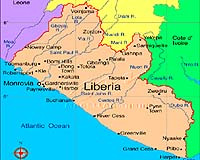| . |  |
. |
Alexandria, Egypt (AFP) April 6, 2010 The desert is making a comeback in the Middle East, with fertile lands turning into barren wastes that could further destabilise the region, experts said at a water conference on Thursday. "Desertification spreads like cancer, it can't be noticed immediately," said Wadid Erian, a soil expert with the Arab League, at a conference on Thursday in the Egyptian coastal town of Alexandria. Its effect can be seen in Syria, where drought has displaced hundreds of thousands of people, ruining farmers and swelling cities, Erian said. He said Darfur in western Sudan is still reeling from a devastating war exacerbated by a shortage of water and fertile land. The United Nations Development Programme's 2009 Arab Human Development Report said desertification threatened about 2.87 million square kilometres of land (1.15 million square miles) -- or a fifth of the Middle East and north Africa. Erian said a large portion of rangeland and agricultural land was under threat, with little effort taken so far to reverse the process. Burgeoning populations, which put further strain on the environment, and climate change are accelerating the trend, he said. "The trend in the Arab world leans towards aridity. We are in a struggle against a natural trend, but it is the acceleration that scares us," he said. "Most Arab countries until 2006 dealt with it as one problem among many. Then agriculture ministers described it as a danger threatening the Arab world. That is because they began to feel pain." A 2007 UN study spoke of an "environmental crisis of global proportions" that could uproot 50 million people from their homes by 2010, mostly in Africa. Erian said that if unchecked, the trend could emerge as a threat to international stability, a conclusion shared by the UN report. "It will lead to more immigration and less security. It will lead to people losing hope," he said. Fatima el-Malah, a climate change adviser for the Arab League, said despite its impact donor countries have not dealt with desertification as a priority. Programmes by the United Nations Convention to Combat Desertification were underfunded, she said. "They said just draw a plan and we'll fund you. There was never any funding."
Share This Article With Planet Earth
Related Links Africa News - Resources, Health, Food
 Progress, frustration as Liberia rebuilds from scratch
Progress, frustration as Liberia rebuilds from scratchMonrovia (AFP) March 25, 2010 Giant potholes make way for smooth streets, freshly painted buildings have appeared among those pitted with bullet holes and lights flicker on as electricity returns to Liberia's war-torn capital. Yet the improvements, seven years after the end of a 14-year civil war which shattered the country's infrastructure, have had little impact on the lives of ordinary Monrovia residents, who remain m ... read more |
|
| The content herein, unless otherwise known to be public domain, are Copyright 1995-2010 - SpaceDaily. AFP and UPI Wire Stories are copyright Agence France-Presse and United Press International. ESA Portal Reports are copyright European Space Agency. All NASA sourced material is public domain. Additional copyrights may apply in whole or part to other bona fide parties. Advertising does not imply endorsement,agreement or approval of any opinions, statements or information provided by SpaceDaily on any Web page published or hosted by SpaceDaily. Privacy Statement |